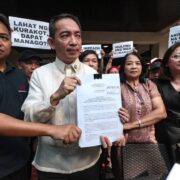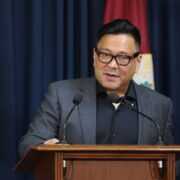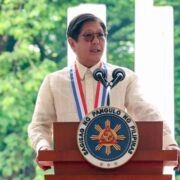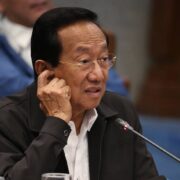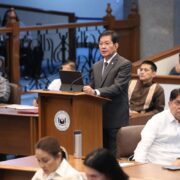Big business gets high marks for investing in PH education
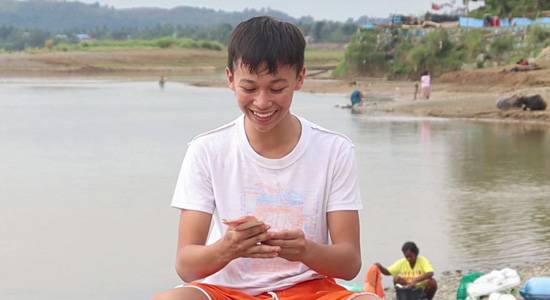
In the same way that they invest heavily in land, machinery and technology, corporate Philippines pours billions of pesos every year in developing human capital, too.
From building and improving classrooms to providing scholarships and bankrolling training programs, the country’s largest conglomerates and corporations do them all and more, motivated by the steadfast belief that investing in education means investing in the country’s future.
Key factor
Metrobank Foundation, one of the country’s most active corporate philanthropic organizations, indeed believes that education is a key factor in poverty alleviation thus is one of its major thrusts.
According to Metrobank Foundation president Aniceto Sobrepeña, the foundation that was established in 1979 by George Ty, founder of the Metropolitan Bank and Trust Co., invests in education because of the primary importance that Chinese culture places in educating the citizens of any society.“An educated population contributes significantly to the economy and well being of all inhabitants,” Sobrepeña explained.“Likewise, the Group believes that if we give financial assistance to deserving students so they could complete their basic and higher education, they could find productive work and earn wages. When this happens they can support their family, find satisfaction in their lives and become productive citizens,” he added.
Metrobank has helped thousands of Filipinos graduate and find gainful employment through various programs implemented over the past 44 years.Just last April, the foundation together with the family-run GT Foundation Inc. signed a memorandum of agreement with 10 academic institutions to add to its scholarship programs, thus sustaining efforts to provide equitable access to quality education.
Financial education
BDO Foundation, the corporate social responsibility arm of BDO Unibank, likewise spends on scholarship and teacher improvement programs, but has also expanded its portfolio to include financial education.
By sharing lessons on financial responsibility with Filipinos, BDO Foundation promotes financial inclusion, contributes to the development of a financially literate citizenry and supports nation-building.
Its projects include the development of training modules, lesson plans and discussion guides to provide beneficiaries with the tools, knowledge and resources to make sound financial decisions.
The programs benefit public school students, teachers and nonteaching personnel; overseas Filipino workers (OFWs) and recipients of remittances; government workers; uniformed and civilian personnel of the armed forces; fisherfolk; firefighters; and police personnel.Through the initiative, the partners share lessons on such topics as saving, budgeting and financial planning, investments, debt management, the responsible use of credit, entrepreneurship, avoiding scams and retirement planning with the target audience.
BDO Foundation implements its financial education programs in partnership with the Bangko Sentral ng Pilipinas, Department of Education, Overseas Workers Welfare Administration, Civil Service Commission, Armed Forces of the Philippines, Bureau of Fisheries and Aquatic Resources, Bureau of Fire Protection and the Philippine National Police.
In 2021, it produced 26 financial inclusion videos and reached 2.7 million beneficiaries including public school teachers, students, fisherfolk, OFWs and fisherfolk.
The Jollibee Group Foundation (JGF), meanwhile, has decided to pay special attention to helping uplift the lives of smallholder farmers through education.
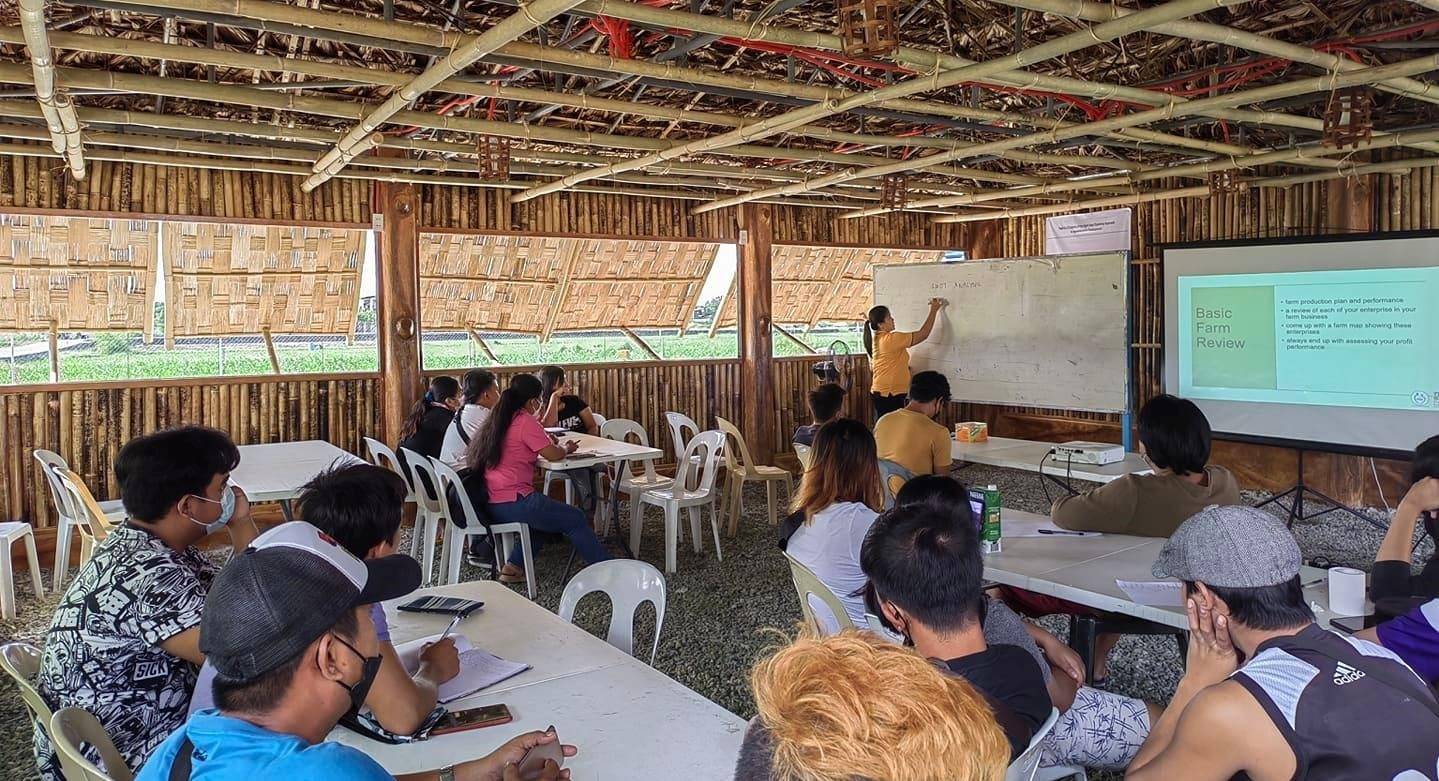
“Being the sector where poverty is highest, it makes sense for us to put our resources in the sector that needs help the most. Being a food company, we are also able to effectively deploy our expertise and resources accordingly,” explained JGF president Gisela Tiongson.
“In recent years we have expanded our training to the youth so that early on they see the potential of earning well in farming. For this we have tapped training centers to offer the agro-enterprise course based on our experience in agro-enterprise development,” Tiongson added.
JGF, for example, provides scholarships to agro-enterprise courses for young farmers. These scholarships are in support of JGF’s Farmer Entrepreneurship Program (FEP), which trains smallholder farmer groups on agro-entrepreneurship, business and leadership to build their capacities to collectively supply vegetables that meet the standards and requirements of corporate buyers, while ensuring profit.
To date, FEP farmers have delivered close to 9 million kilos of vegetables to the Jollibee Group, equivalent to more than 7-million USD worth of sales. As of 2021, nearly 20 percent of the close to 600 FEP farmers from 17 farmer groups directly supplying vegetables to the Jollibee Group belong to the youth sector.The Foundation has provided some 380 youth with agriculture technical-vocational skills training scholarships. In 2021, JGF beefed up this initiative by launching one of the country’s first Agro-enterprise National Certificate II Technical-Vocational Course. This was codeveloped with Don Bosco and accredited by the Technical Education and Skills Development Authority.“We want to help farmers earn more by engaging them not only in production, but also in collective marketing. Farmers, especially the young ones, need partners who can journey with them in envisioning and building their agro-enterprises,” Tiongson said.
The Gokongwei Brothers Foundation, for its part, has dedicated itself to contributing to the country’s progress by promoting STEM (Science, Technology, Engineering and Mathematics) education. The 30-year-old foundation does this through scholarship grants, a technical training facility, endowments, educator professional development and collaborations with industry and community partners.
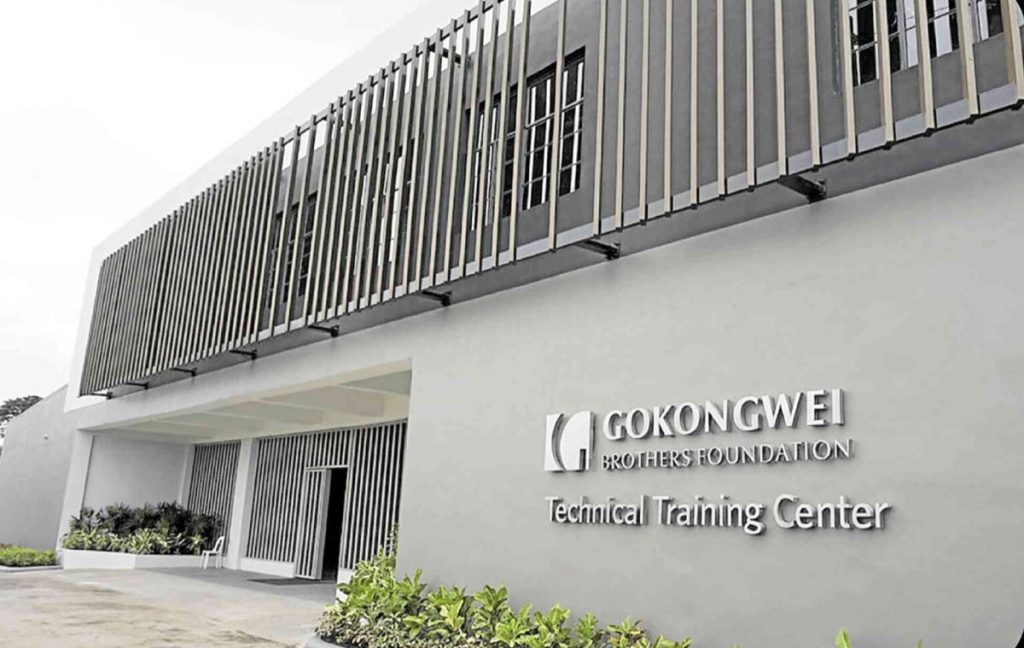
GBF general manager Lisa Gokongwei-Cheng said the foundation invests heavily in education because the founders themselves—Gokongwei brothers John, Johnson, Henry and James—valued education. This is why they established the foundation in 1992, with the goal of having a lasting impact on education in the Philippines.
“While Mr. John did not graduate high school because of the war, he was a lifelong learner, and was able to get an MBA from DLSU while he was working and attended a short-term Harvard management program. All the brothers—Henry, Johnson and James were the same. They liked to read, go around the world to learn what was happening in the business world,” Gokongwei-Cheng said,
“Second, the brothers knew that for the country to succeed, it needed to have a strong STEM education foundation. This is where our initiatives are focused,” she added.
GBF’s most recent endowment was to Ateneo de Manila University, which set up a new school focused on education under Fr. Johnny Go, the Gokongwei Brothers School of Education and Learning Design.
The foundation is also on track to reach its goal of having 1,000 teacher scholars in 2025.
Since 2006, GBF has offered scholarship programs to 1,780 scholars producing 1,116 graduates as of 2022, with almost half of them having been employed by various Gokongwei Group companies.
With its long-standing commitment to increase access to quality education and support the growth of STEM learners and educators, GBF has grown to become one of the top scholarship-giving organizations and the biggest private sector provider of STEM-related scholarships in the country.
Big share
According to Oman Jiao, Executive Director of the Association of Foundations, health and education are always the top two program priorities of its members and most nongovernment organizations and foundations.
Last year, about 60 percent of its members provided a combined P2.3 billion in education while close to half provided P5.9 billion for health as the Philippines continues to recover from the ravages of the COVID-19 pandemic.
“The two are the most needed by our families, households and communities. Effects on these two interventions are also long term,” said Jiao.
Telecommunications giants PLDT and Smart have likewise poured funds into education programs.Recently, it expanded its eBiznovation initiative, a digital upskilling-to-ecommerce program that aims to provide local entrepreneurs, cooperatives and Micro-, Small and Medium-sized Enterprises, with the right digital tools to help them grow their businesses online.
In scaling up eBiznovation, PLDT and Smart have started using other platforms to promote the program and encourage more partners to extend opportunities from digitalization.
“At PLDT and Smart, we believe that collaboration is key to advancing the goals of eBiznovation and achieving them more efficiently. By working with like-minded partners from various industries, we are able to boost our efforts to digitally upskill and assist local enterprises, helping them to increase productivity and income through digital technology,” said Stephanie Orlino, AVP and head of Stakeholder Management at PLDT and Smart.The PLDT Group continuously finds ways to promote inclusive technologies that can help boost livelihood opportunities among farmers and fisherfolk, leaving no one behind.
The eBiznovation program also highlights the PLDT Group’s support to the government’s Go Digital Pilipinas Movement as a founding member of the Digital Infrastructure pillar of the Private Sector Advisory Council, which seeks to uplift the lives of Filipinos through adoption of digital services. INQ EDUCATION FOR ALL By sharing lessons on financial responsibility with Filipinos, BDO Foundation promotes financial inclusion. —photo from BDO Foundation


